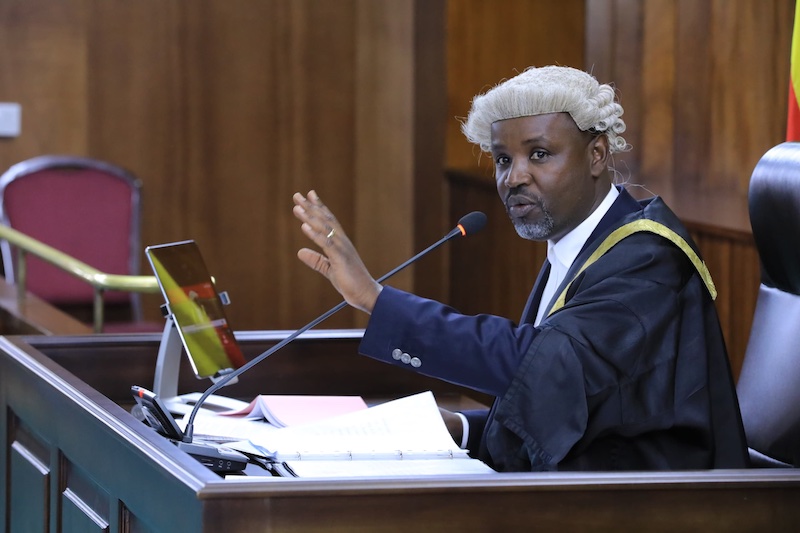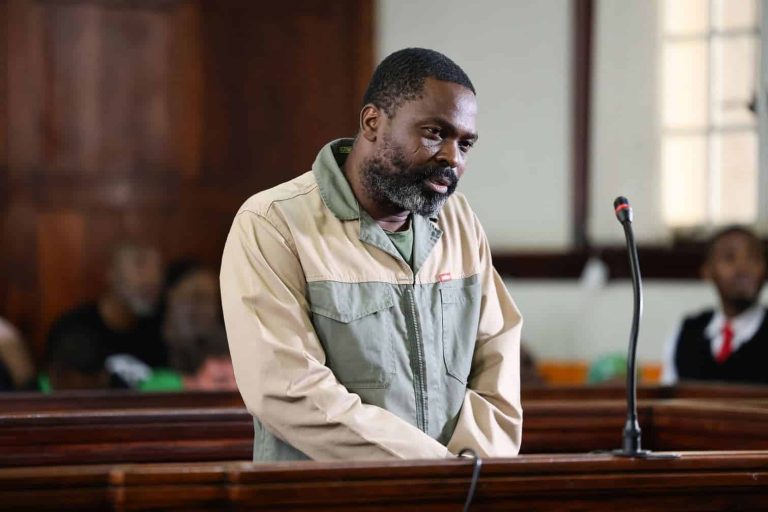
Ugandan members of parliament have voted to retain what many critics describe as a bloated legislature of over 556 members, making Uganda’s parliament the largest in East Africa and among the top-tier globally when compared to country size and population.
As of March 26, 2025, the outgoing 11th parliament comprised 556 members including 353 constituency representatives, 146 district women representatives, 10 Uganda People’s Defence Forces (UPDF) representatives, 5 youth representatives, 5 representatives for persons with disabilities (PWDs), 5 workers’ representatives, 5 older persons’ representatives, and 27 ex officio members.
During Monday’s plenary session, MPs debated a motion tabled by Justice and Constitutional Affairs Minister Norbert Mao under Article 78(2) of the Constitution and Section 8(3) of the Parliamentary Elections Act.
The motion sought parliamentary approval to review representation for special interest groups as provided under Article 78(1)(b) and (c), covering district women MPs, the army, youth, workers, and PWDs.
Several lawmakers urged the ministry of Justice and Constitutional Affairs, Norbert Mao to establish a Constitutional Review Commission to examine the expanding size of Parliament and the diminishing influence of special interest groups.
Both ruling NRM and opposition MPs unanimously supported the motion, which passed with a two-thirds majority. The decision is expected to influence representation in the next parliament and may impact the 2026 general elections, party balance, and the allocation of special interest seats.
Mao proposed that parliament retain one woman representative for every district and city and maintain the current level of representation for special interest groups. The House also retained the 10 army representatives, with two seats ring-fenced for female soldiers, and five workers’ representatives, one of whom must be a woman.
The five youth, PWD, and older persons’ representatives were also retained, each category required to include at least one woman. Sarah Opendi, the Tororo District Woman MP, seconded the motion but warned that Uganda remains a patriarchal society that continues to marginalise women in politics.
“Only 15 women won directly elected seats out of 356 constituencies in the 11th parliament,” she said. “It is very sad that we still live in a patriarchal society that does not appreciate women’s participation in politics. That said, decision-making is actually still within the male domain. Currently, the NIRA board has only one woman. Yes, Hon. Benna Namugwanya – all the others are men.”
Opendi urged the government to “wear a gender lens” when approving appointments to public boards and institutions. Alex Ndeezi, a representative for persons with disabilities, expressed concern over the declining representation of PWDs across ministries, departments, and agencies, calling it a violation of Article 35 of the Constitution.
“Parliament has doubled from 290 MPs in 1996 to 556 today, but PWD representation has dropped from 2 per cent to 0.8 per cent,” he said. “If this continues unchecked, our representation will vanish entirely.”
Ndeezi proposed that each special interest group, PWDs, youth, women, and older persons, be allocated 10 seats to reflect Uganda’s population growth. Erute South MP Jonathan Odur also criticised the ballooning size of parliament, noting that it places a heavy financial burden on taxpayers.
“The entire country has been concerned about the size of parliament, and I would invite the government to holistically look at this matter. I think the concern about the increasing number of members of parliament vis-à-vis the burden on the taxpayer is a big concern. Because in this motion, the constitution ties our hands, we can only retain, increase or abolish. The moment the government chose to come by way of motion, it means we cannot abolish any of this; if we’re abolishing, we need a bill,” Odur said.
He pointed out that India, with a population of 1.38 billion, has 552 MPs, almost the same number as Uganda, which has a population of about 48 million. The Shadow Justice minister urged the government to meet the one-third gender requirement for UPDF and workers’ seats and to ensure regional balance among workers’ representatives.
Budama West MP Fox Odoi echoed these concerns, warning that the percentage representation of special interest groups continues to shrink as parliament expands.
“We should fix their representation at a constant percentage, say 3 to 5 per cent, so that every increase in MPs doesn’t marginalise these groups further,” Odoi advised.
Attorney General Kiryowa Kiwanuka acknowledged the MPs’ concerns but said immediate reforms would be limited by Article 93 of the Constitution, which bars amendments that would increase public expenditure.
Presiding over the session, deputy speaker Thomas Tayebwa said passing the motion was necessary to allow the nomination of special interest group candidates scheduled for October 22, 2025, ahead of the January 2026 general elections.
The renewed call for a Constitutional Review Commission has been championed by Mao since 2023. He maintains that a formal review is necessary and has repeatedly stated that President Yoweri Museveni will decide the Commission’s fate.
Uganda last conducted a major constitutional review in the early 1990s, culminating in the 1995 Constitution, which remains the foundation of the country’s current political framework. Since then, several actors, including civil society groups, MPs, and ministers, have pushed for constitutional reforms on issues such as term limits, age limits, devolution, and electoral rules.



